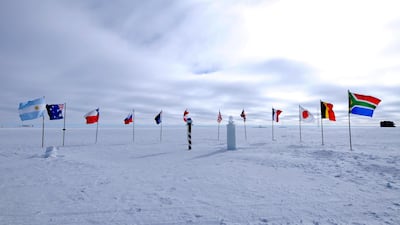A Russian engineer who allegedly stabbed a fellow staff member at a remote Antarctica research station did so because his colleague “kept telling [him] the endings of books before he read them”.
Sergei Savitsky stabbed a colleague in the chest with a knife on October 9 in the canteen at Russia’s Bellingshausen Station, “with the aim of murder”, the Saint Petersburg court press service said.
The Sun newspaper reported that Savitsky and Oleg Beloguzov had become avid readers during their long stay at the station. Savitsky reportedly became "fed up" that his colleague was ruining the books for him so assaulted him in a fit of rage.
A city district court ordered that he be held under house arrest on a charge of attempted murder.
Savitsky, 54, gave himself up to police after flying to Saint Petersburg on October 20 via Chile, Uruguay and the Netherlands, local news site 47news.ru reported.
Savitsky told the news site he regretted his actions, adding: “who needs someone waving a knife around in the Antarctic?”
The wounded Beloguzov was sent to Chile but is not in a serious condition, Saint Petersburg's Fontanka news website reported.
He is to take a regular flight back to Russia, the report said, citing the Institute of the Arctic and Antarctic where Savitsky works.
Twelve people are still working at the base, station head Alexander Klepikov told 47news.ru.
Both men had reportedly spent more than six months at the site, where Savitsky was an electrical engineer while Beloguzov is a gas and electric equipment welder.
Bellingshausen was founded in 1968 on King George Island, and is also known as Waterloo. Russian television said it has one television channel and a shaky Internet connection.
Such crimes are rare however, despite the pressures of working in remote environments for long periods.
In 2010, a meteorologist at a weather station in the Russian Arctic was found guilty of murdering a colleague and trying to cover it up as a suicide. He was sentenced to 12 years.

